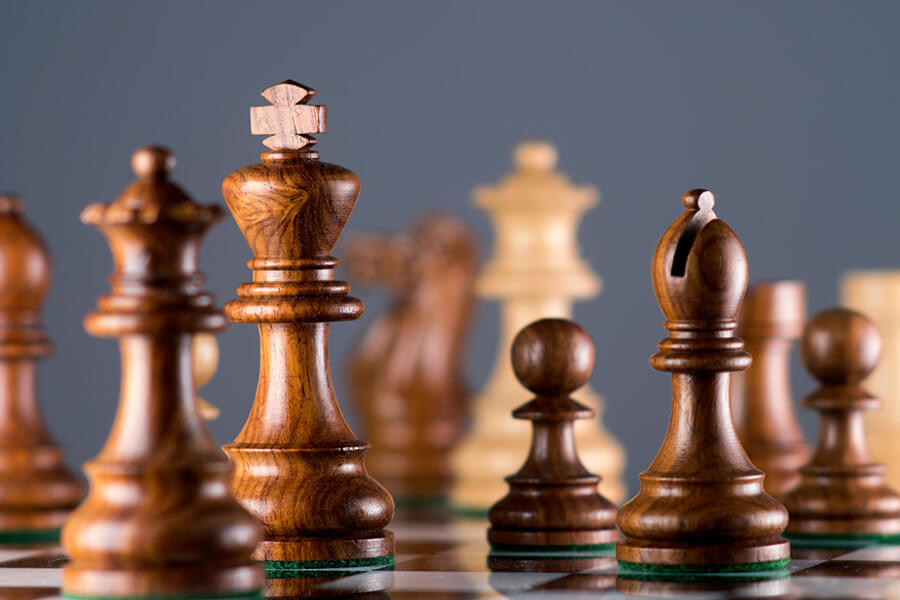No products in the cart.
Chess Rules & Instructions
Top 10 Chess Courses To Take In 2023
Function of Chess Course
Chess courses serve several important functions in helping individuals improve their chess skills and understanding of the game. Here are some key functions of chess courses:
1. Instructional Content: Chess courses provide structured and organized instructional content, covering various aspects of the game. They offer lessons on fundamental principles, opening strategies, middlegame concepts, endgame techniques, tactical patterns, positional understanding, and more.
2. Skill Development: Chess courses focus on developing specific skills necessary to become a stronger player. By engaging in these exercises and analyzing annotated games, students can enhance their chess-playing abilities.
3. Strategy and Planning: They teach students how to assess a position, formulate plans, and execute them effectively. Understanding strategic principles is crucial for making wise choices during a game and achieving a favorable outcome.
4. Opening Repertoire: Chess courses frequently include lessons on various opening systems. They guide students in building a solid opening repertoire, covering popular lines, important ideas, and typical middlegame plans associated with different openings. Developing a well-rounded repertoire helps players navigate the early stages of the game with confidence and sets the foundation for a successful middlegame.
5. Analysis and Evaluation: Chess courses emphasize the importance of analyzing and evaluating positions and games. Students learn how to assess the strengths and weaknesses of a position, identify critical moments, and formulate plans accordingly. Through guided analysis, learners develop critical thinking skills and gain a deeper understanding of the game’s complexities.
6. Game Annotations and Studies: Courses often include annotated games of famous players, showcasing instructive moments and strategic ideas. Additionally, courses may introduce students to famous chess studies and endgame compositions, which help improve calculation, visualization, and endgame skills.
7. Competitive Preparation: Chess courses can also assist players in preparing for competitive play. They cover tournament strategies, time management, psychological aspects of chess, and techniques for dealing with different types of opponents.
8. Community and Interaction: Many chess courses provide opportunities for students to interact with instructors and fellow learners. This can be through live webinars, discussion forums, or online chess clubs. Interacting with other chess enthusiasts fosters a sense of community, allows for sharing ideas, and facilitates collaborative learning experiences.
In summary, chess courses serve as comprehensive learning resources that cover a wide range of topics, provide structured instruction, and help students improve their chess skills, strategic understanding, and competitive performance.
What Is The Best Chess Course?
1. “Masterclass: Garry Kasparov Teaches Chess” – This course by legendary chess grandmaster Garry Kasparov provides insights into his strategies, analysis of famous games, and tips for improving various aspects of the game.
2. “The Grandmaster’s Opening Lab” by GM Damian Lemos – A comprehensive course covering various opening systems, explaining key ideas, and providing guidance on building a strong opening repertoire.
3. “The Complete Chess Course: From Beginning to Winning Chess” by IM Jeremy Silman – This course is designed for beginners and intermediate players, covering all aspects of chess, including tactics, strategy, endgames, and positional understanding.
4. “Chess Tactics Masterclass: Tactical Training” by IM Valeri Lilov – Focusing on tactics, this course helps students improve their calculation skills and pattern recognition, covering a wide range of tactical motifs.
5. “The Woodpecker Method” by GM Axel Smith and GM Hans Tikkanen – This course is designed to enhance tactical skills through repetitive training, helping players spot tactical opportunities and calculate variations accurately.
6. “Endgame Expert: The Complete Chess Endgame Course” by GM Daniel Naroditsky – This comprehensive course covers a wide range of endgame topics, providing essential knowledge and techniques to handle endgame positions effectively.
7. “The Chess Structures Course” by IM Andrey Ostrovskiy – This course focuses on pawn structures and their impact on the game, helping players understand the middlegame plans associated with different pawn formations.
8. “The Prodigy’s Rapid Chess Improvement Course” by GM Max Illingworth – Designed for intermediate players, this course offers a structured approach to improving various aspects of chess, including calculation, strategy, and tournament preparation.
9. “Powerful Practical Pawn Play in Chess” by IM Alisa Melekhina – This course explores the intricacies of pawn play, teaching players how to utilize pawns effectively to gain strategic advantages and create winning chances.
10. “Chess Strategy Masterclass: Strategic Training” by IM Igor Smirnov – Focusing on strategic concepts, this course provides guidance on evaluating positions, formulating plans, and making long-term strategic decisions.


